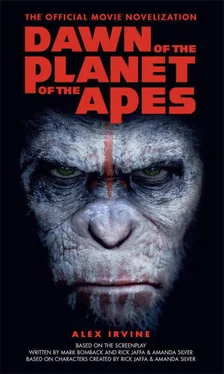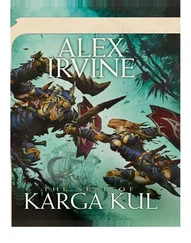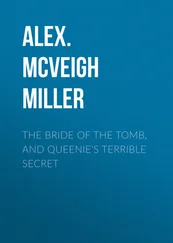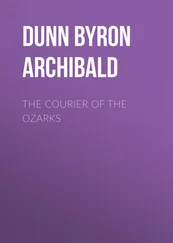Dreyfus let him think for a moment, then prompted him.
“How many were there?”
“I don’t know,” Malcolm said. “Eighty? Ninety?”
Dreyfus shifted in his seat to focus on Ellie.
“Is there a risk of contagion?”
She shook her head. “For one thing, we’re all immune, or we wouldn’t be here. For another, we’re not sure the apes spread it.”
“Sure,” Kemp said. “It’s a total coincidence that the flu hit right after all those apes broke out. And for all you know, we could be infected again right now. You weren’t a doctor, you’re a nurse.”
Ellie bridled at the insult, but tried to keep her cool.
“I worked with the CDC,” she reminded him. “Before… everything collapsed… we were isolating the disease vectors. The flu started in a lab, that much we know. But the lab was working with a number of strains of different microorganisms. One of them could well have started the flu.”
“I don’t want to argue about the flu,” Dreyfus said. “Ellie, if you say we’re immune, I believe it. Malcolm, finish the story. Tell me everything.”
“Not much more to tell,” Malcolm said. “The apes showed up—mostly chimps, but there were some gorillas and orangutans, too. They looked at us. We looked at them. Then one of them, the leader, told us to get the hell out. They were… they were organized, Dreyfus. They looked to their leader, they took their cues from him, they…”
He stopped the truck so he could look at Dreyfus.
“They were intelligent,” he said. “You could see it in their eyes.”
Dreyfus stayed silent. Outside the truck, three coyotes loped across Van Ness in the direction of Lafayette Park. They had the run of the city now. There were mountain lions and bears in the Presidio. Only in the Colony did humans still hold sway… and Malcolm could almost read Dreyfus’s mind.
If there are that many apes out there, how long will it be until they decide to finish what the plague started?
“Sorry, I don’t know if you heard what he said,” Carver said. “They spoke.”
Dreyfus nodded. “Everyone, just, please… I’m trying to process this. Give me a second to process this.” After a beat, as if thinking aloud, he said, “I thought they were all dead? There were air patrols, fire bombings…”
There had been. Large swaths of the forest at the edges of Muir Woods National Park had gone up in smoke. Malcolm didn’t know the details, but patrols of armed mercenaries had gone after the apes, too—at least until the Simian Flu took priority. Dreyfus had been in charge. If he was confused, the apes’ survival must have been incredibly unlikely.
The image of the apes strung along the ridgeline over the river came back to Malcolm. However unlikely it might seem, they were there.
“Fire bombings, huh?” Carver said. “Mission not accomplished.”
In the truck behind them, Foster honked. Malcolm looked out the window and saw Foster waving him on. He was in a big hurry to get out of the abandoned city to the safety of the Colony. Malcolm put the truck in gear again. They couldn’t just drive around the city forever.
“What are we going to do?” Ellie asked.
“I don’t know,” Dreyfus said. “We need that dam running. Without power… oh, crap.”
They drove for a while in silence. Carver sulked and muttered back and forth with Kemp. Malcolm couldn’t hear the conversation, but he knew the man well enough to figure that they were griping about the failure to exterminate the apes, ten years ago. In the rear-view mirror, Malcolm saw Alexander scoot away from Carver. The boy didn’t like aggression, and it came off Carver in waves. Whatever happened, Malcolm thought, they would have to keep him away from the apes, or somebody would get killed.
“All right,” Dreyfus said. “Let’s not tell anybody about this. Not until we figure out what to do.” Malcolm started to argue, but Dreyfus went on. “I don’t want to create a panic. We’re barely holding things together as it is.”
He didn’t like it, but Malcolm nodded. A few minutes later they arrived at the Colony.
The Colony was built into the lower levels of a skyscraper that had been in progress when the plague struck, and still stood unfinished, its upper floors a steel skeleton with cranes still braced against the clusters of girders that framed elevator shafts.
The lower twenty floors or so had flooring, and had been turned into housing for the few thousand people who, for all they knew, were the last surviving humans on earth. The bottom six floors occupied the entire block, and enclosed what had been envisioned as an upscale mall and luxury office complex.
Dreyfus had chosen the location carefully. The triple arch of the building’s main gateway was easily defended, and other entrances had been blocked for years. At first they had built defenses against gangs and loose militias that had ravaged the city during the plague’s first years. As time went on and more and more people died, however, many of those marauders “came in from the cold,” as it were, joining what came to be called the Colony.
Now they all had to stick together.
Part of the mall was open to the air. Its roof had fallen in during the earthquake and they had never had the resources to spare for repairs.
An open area on the other side of the building had once offered parking and delivery space. The Colony’s mechanics and engineers had taken it over, and their meager supplies of fuel were stored there. Long lines for fuel were a fact of life. There was very little of it, and as the years passed, they were able to find less and less in sealed tanks throughout the city. Much of what they did find went to power the generators that gave the interior of the Colony power for a few hours a day.
Inside the ground floor of the Colony, where there were supposed to be salons charging sixty bucks for a haircut next to boutique clothing stores and gelato stands, they had established a bazaar where time was the only currency, and barter was the general rule. Every morning, groups went out into the city, ranging as far as they could while making certain they could return to the Colony by nightfall. Occasionally Dreyfus authorized longer expeditions, but some of those didn’t come back.
There were animals. There were accidents. What they didn’t have, Malcolm thought, was enough people.
A broad outdoor staircase led from the entrance to street level. Barricades and sentry platforms lined it and covered two of the three openings. The third had a reinforced gate. It had been a while since they needed to hold the Colony against any violence, but Dreyfus insisted they maintain the defensive measures. He called it—to anyone within earshot—a “better-safe-than-sorry” approach to the security of the Colony.
“You never know what’s coming,” he told everyone. “We can’t assume we’re the only ones left, and we can’t assume the next people we see will be friendly.”
Assume nothing… but if you’re going to assume something, assume the worst. That was Dreyfus.
* * *
They got out of the trucks and headed in. On the way, Malcolm dropped a hand on Alexander’s shoulder.
“Hey,” he said, noting his son’s morose demeanor. “I’m sorry you lost your bag back there.”
Alexander shrugged. That was his response to lots of things lately. Malcolm tried not to let it get to him. Fifteen was a tough age, even when you hadn’t grown up during the collapse of human civilization.
“You okay?” Ellie asked on his other side.
Alexander nodded after a moment. Malcolm focused on that moment. His son wouldn’t have given it to him. Ellie could get through to the boy, even though she wasn’t his mother. She made no effort to replace Malcolm’s mother. She was just there. She had made a point of being there until he trusted her. Also, she was a better listener than Malcolm, which meant she picked up on things he didn’t.
Читать дальше












